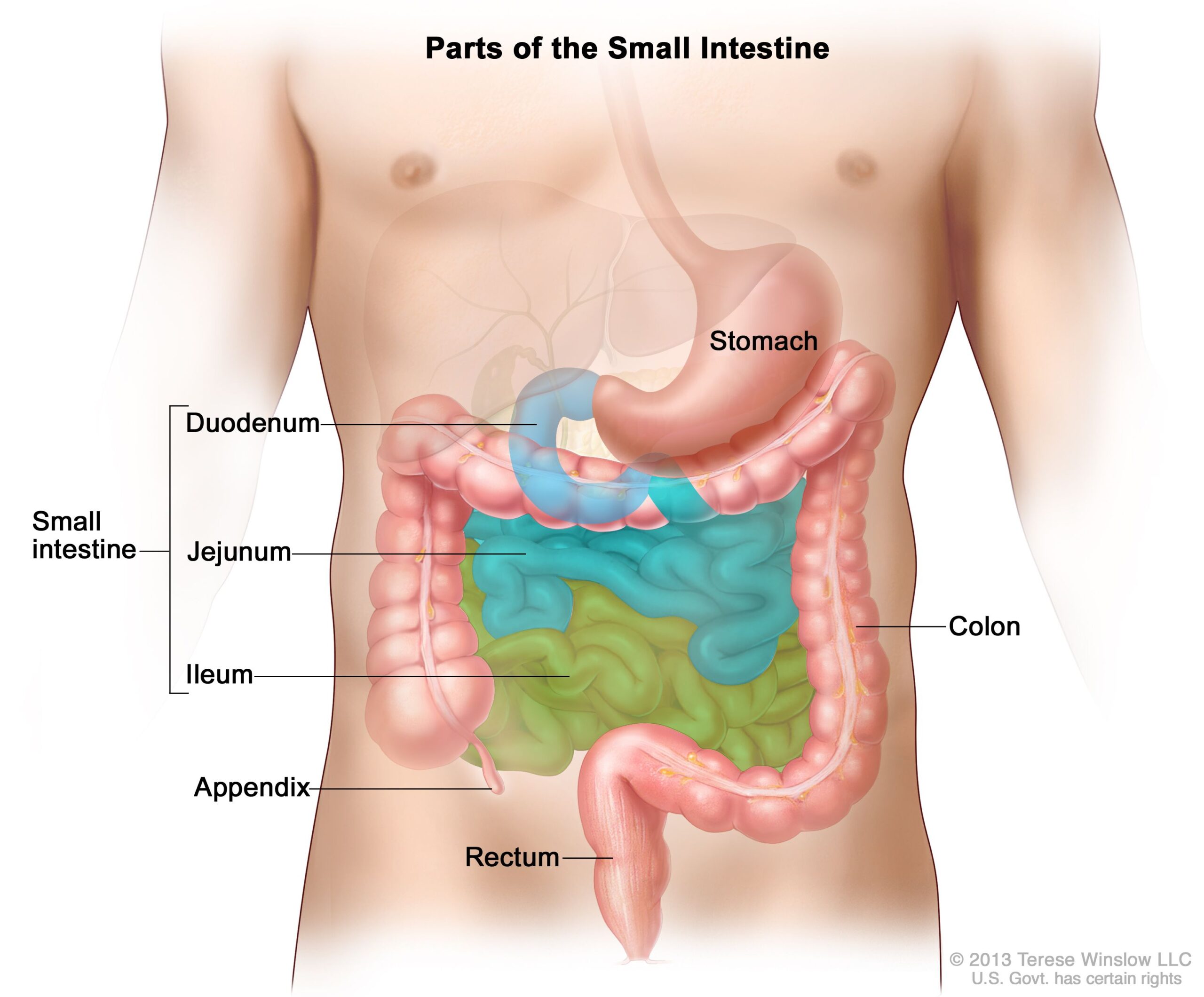What Is Small Intestine Cancer?
Small intestine cancer is a rare disease where cells in the tissue of the small intestine change. They grow out of control and can form a mass, or tumor.
There are five types of small intestine cancer:
- Adenocarcinomas. These make up an estimated 30% to 40% of cases. Adenocarcinoma starts in the lining of the small intestine. At first, it may look like a small, noncancerous growth called a polyp, but over time it can turn into cancer.
- Sarcoma. Cancerous cells develop in the soft tissue of the small intestine.
- Carcinoid tumors. These slow-growing cancers often take root in the lower section of the small intestine. They might also affect your appendix or rectum. These tumors give off large amounts of certain body chemicals, like serotonin.
- Gastrointestinal stromal tumors (GISTs). This is a rare form of small intestine cancer. More than half of them start in the stomach. Not all GISTs are cancerous.
- Intestinal lymphomas. Lymphoma is cancer that starts in the lymph nodes. People who develop them often have a type of immunodeficiency disorder. That means your body’s natural defense system is weakened and may not fight infection and disease the way it should.
What Causes It, and Who’s at Risk?
- How old you are (average age at diagnosis is 60)
- Your sex (slightly higher risk in men)
- Genetics (some disorders you’re born with raising the odds)
- Smoking and alcohol use
- High-fat diet
- Living or working near large quantities of some chemicals, like phenoxyacetic acid
- Other conditions that affect your gut, like Crohn’s, colon cancer, or celiac disease
- Lymphedema (damage to the vessels that connect to the lymph nodes)





